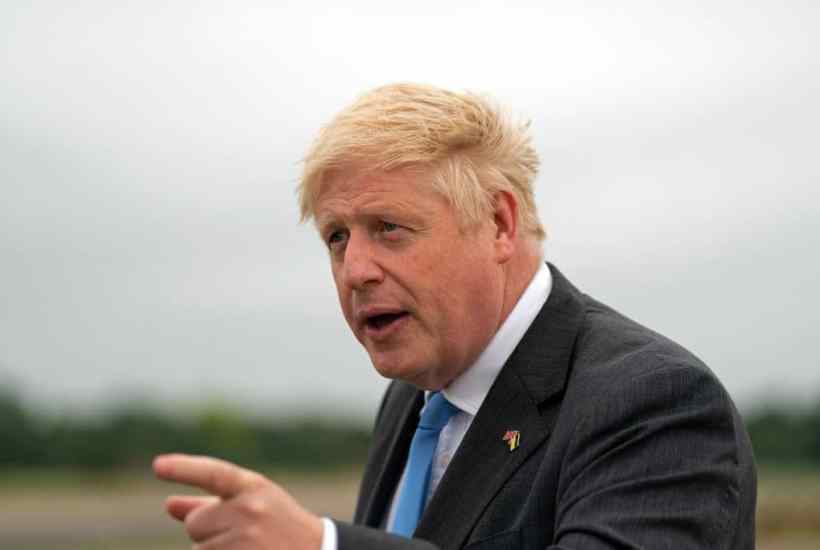Today, the RMT will succeed where the Luddites failed. For 24 hours, they will unwind the most impressive part of the Industrial Revolution, stripping Britain of trains. They will repeat the feat on Thursday and Saturday. The government, meanwhile, will wring its hands, complain about the losses faced by workers and businesses, and do very little to address them. While this won’t do much for GDP, it does at least offer the possibility of resolving the bulk of the energy crisis by harnessing the Iron Lady’s rotations in her grave.
Frankly, I don’t care whether the railway staff are to blame for being intransigent. Or if the Treasury is to blame for, well, being the Treasury and fighting a desperate rearguard against spending money that could be used on election-winning bungs to pensioners. What bothers me is that we are in a position where unions can bring the country to a grinding halt in the first place.
Unions exist to be obstructive and difficult. As the late RMT chief Bob Crow put it, ‘spit on your own and you can’t do anything, but if we all spit together we can drown the bastards’. It’s exactly that attitude that has secured the generous pay and working conditions of the unions members, and my congratulations to them on doing so.
But hang on a moment. There are at least two sides to any transaction, and in this case one of the other parties involved is the government, through Network Rail. When the union strikes for higher wages, it’s effectively asking for greater subsidies from the taxpayer. In other words, from me and you.
Unions are generally good for their members, and bad for everyone else. There are exceptions to this rule when companies enjoy significant market power, and railways are the sort of thing where this might apply. In this case, however, the principal demands of the RMT are higher wages (which you pay for), more staff (which you pay for), and a halt to changes (which would make trains cheaper). We can stick to good old fashioned neoclassical union-bashing.
So again, given that trains are heavily unionised, and the changes were always going to be contentious, what’s annoying is that there seems to have been very little preparation for breaking the back of the union efforts to block them. A cynic might observe that the sky high proportion of public sector workers who are themselves unionised might lead them to be a little reluctant to assist politicians in formulating policy designed to limit union power, but that would be unworthy.
After all, in complete fairness, the government has hit on a very good idea with their plan to allow rail companies to bring in agency workers. If you were in any doubt that the idea has merit, its opponents have described it as ‘almost certainly’ breaking international law, which is always the last refuge of the scoundrel – but it is also a little late.
A broader point is that critical transport infrastructure like the London Underground really should not be dependent on the whims of the union to operate. It would be wonderful to live in a world where Transport for London went hell for leather on driverless trains (Grade of Automation 3+, with low-skill easily-replaced attendants for safety and comfort). But the cost of getting that to work on the Underground, combined with the British state’s general attitude that such barriers are not worth the time to try and overcome, means that we’ll build High Speed 3 before we get around to that. However, it’s also true that Underground trains are not that difficult to drive. Training a reserve of railway staff to operate the system during strikes – and to avoid the costs and snarls associated with them – seems like it could be quite a good use of money.
And if the Treasury is worried about funding it, consider the following. Today’s strikes will cause dozens of commuters to pile into their cars and begin the long, infuriating journey to work on clogged roads, inching along while their exhausts belch fumes into the sky. Not good for the planet, not good for air quality. Fortunately, we can solve two problems at once. If we double the congestion charge on strike days, we can hold down road use – keeping them clear for the most important users – and also find the money to fund our strike breaking reserve.
Got something to add? Join the discussion and comment below.
Get 10 issues for just $10
Subscribe to The Spectator Australia today for the next 10 magazine issues, plus full online access, for just $10.




















Comments
Don't miss out
Join the conversation with other Spectator Australia readers. Subscribe to leave a comment.
SUBSCRIBEAlready a subscriber? Log in